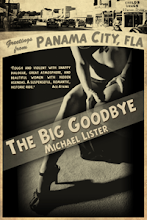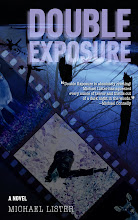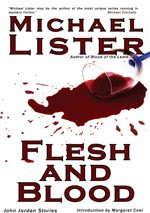
I’m always interested in the emergence of similar themes in movies—not trends that have an innovator and imitators, but films released so closely together it seems their creators were having the same dream.
Two recent films exploring the same issue (namely, is it possible for a man and a woman to have a purely sexual relationship?) are “Love and Other Drugs” and “No Strings Attached.” And though both approach the subject in different ways, with different characters and setups, they have enough in common to inspire a look at their underlying cultural significance. My guess is that for these two films that actually got the green light, hundreds of scripts representing variations on this same theme were tossed over many an agents transom.
So, why all this interest in sex only scenarios? Why is “friends with benefits” so popular? The primary reasons given for the purely sexual relationships in the movies are to avoid pain and complications. Is this a result of a generation reacting to their parents’ bad breakups? A defensive stance against the cost of caring and the inevitability of heartache? Is it the result of feminism? Porn? The masculinization of relationships? The moving onto the mainstream radar of alternate ways being and relating? I’d say it’s some of all the above.
Regardless of the relationship configuration—friends, lovers, partners, sex buddies, or any combination or variation—the two things that are unavoidable are the very things the couples in each movie are attempting to avoid. When we invite someone into our lives—in any capacity at all—we are inviting pain and complications. This is particularly true of friends and lovers.
The Buddha said life is suffering.
It’s part of life. It is life.
Jesus said compassion—the act of feeling what others feel, including their pain—is the most life God we can be.
To me, the relevant question is not “Is it possible to have a relationship that avoids suffering and complications?” but “Why would you want one?” Life is messy. We are the children of the big green slimy mama. We are complex beings fashioned in the likeness of God, the contradiction, according to the biblical book of Genesis, of lofty spirit and lowly dirt, animal and spiritual. Can we really join ourselves with other such creatures without übercomplications, heartache, friction, frustration, pain, joy, ecstasy, creativity, love, anger, challenge, difficulty, meaning, and madness? And if we could, why would we want to?
Nietzsche said, “There is always some madness in love. But there is also always some reason in madness” and Francoise Sagan said, “I have loved to the point of madness / That which is called madness / That which to me / Is the only sensible way to love.” To me, both quotes resonate within this anonymous one: “A fool in love makes no sense to me. I only think you are a fool if you do not love.”
The gentle madness of love that makes fools of us all is not to be avoided, but sought. The fact that, as Shakespeare so insightfully noted, “the course of true love never did run smooth” is the whole point.
Of course, it’s human nature, or seems to be, to avoid suffering, to search for the situation that gives the most pleasure for the least personal cost. And that’s exactly what the characters of these two films attempt.
In “No Strings Attached,” Emma (Natalie Portman) and Adam (Ashton Kutcher) are life-long friends who almost ruin everything by having sex one morning. In order to protect their friendship, they make a pact to keep their relationship strictly "no strings attached." "No strings" means no jealousy, no expectations, no fighting, no flowers, no baby voices. It means they can do whatever they want, whenever they want, in whatever public place they want, as long as they don't fall in love. The questions become - Can you have sex without love getting in the way? And can their friendship survive?
In “Love and Other Drugs,” Maggie (Anne Hathaway) is an alluring free spirit who won't let anyone - or anything - tie her down. But she meets her match in Jamie (Jake Gyllenhaal), whose relentless and nearly infallible charm serve him well with the ladies and in the cutthroat world of pharmaceutical sales. Maggie and Jamie's evolving relationship takes them both by surprise, as they find themselves under the influence of the ultimate drug: love.
Neither picture is great, and though “Love and Other Drugs” is the better film, both are entertaining, have moments of humor and insight, and really strong performances from their respective stars and supporting cast. As usual, Natalie Portman stands out—something she’s been doing since “Leon: The Professional” and all the way through “Beautiful Girls,” “Garden State,” “V is for Vendetta,” “Closer,” and again just recently in “Black Swan.”
But far more interesting than any performance or even the films themselves is the lengths we go to in order to avoid pain and heartache and complication and vulnerability and, yes, madness. We’re defending against the things we need most—loss of control, ego death, connection, compassion, need, want, desire, love.
Our souls need the complexity and difficulty and challenge and pain of relationships. We cannot become who we’re meant to be without them. The notion that we can have lovers with no strings or sex with no complications is a denial of the soul and assumes choosing who we love and get involved with is somehow a rational decision up to us, but as Rumi said, “Lovers don't finally meet somewhere. They’re in each other all along.” Our souls find each other, are drawn together by forces we can scarcely imagine, and our connections accomplish things within us we can’t begin to comprehend—and it doesn’t get much more complicated or stringy than that.














